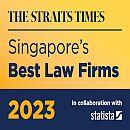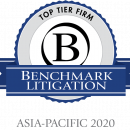The HKMA’s Bank Culture Reform Circular: How is it relevant to me?
Culture Reform
The Hong Kong Monetary Authority (“the HKMA”) released a circular entitled "Bank Culture Reform” on 2 March 2017. The circular sets out a framework for establishing a sound corporate culture within an Authorized Institution (“AI”) based around the three pillars of “Governance”, "Incentives”, and “Assessment and Feedback”. An AI is essentially an institution authorised under the Hong Kong Banking Ordinance to carry on the business of taking deposits under the regulatory oversight of the HKMA.
The HKMA is of the view that, while AIs have made some inroads toward establishing a culture that promotes prudent risk management, much more is required to ensure that culture is really driving positive customer outcomes and high ethical standards within the industry.
All AIs, whether incorporated in Hong Kong or elsewhere, are required to implement the framework by 1 March 2018, although for overseas incorporated AIs the circular permits a tailor-made framework as individual circumstances may require. Singapore-incorporated financial institutions registered as AIs in Hong Kong are well-advised to pay close attention to the circular.
The idea of culture reform is no stranger to the Singapore community. The Monetary Authority of Singapore (“MAS”) has actively promoted the benefits of a positive corporate culture in financial institutions, particularly transparency, fair dealing and trust, for many years. Recent examples include:
- http://www.mas.gov.sg/News-and-Publications/Speeches-and-Monetary-Policy-Statements/Speeches/2017/Culture-and-Conduct.aspx
- http://www.mas.gov.sg/news-and-publications/speeches-and-monetary-policy-statements/speeches/2015/building-a-culture-of-trust-in-the-financial-industry.aspx
The release of the circular by HKMA is a timely reminder to all of the importance, and benefits, of fostering a positive culture within the industry.
Why is culture so important?
The HKMA, and indeed many global regulators, have said that corporate culture is a real priority for 2017 and this is because poor culture continues to threaten market integrity and consumer protection.
This threat can be seen in all of the most significant conduct failings cases to date. Whether it be the Libor scandal, forex rigging, anti-money laundering breaches, misselling of Payment Protection Insurance or the Sons & Daughters programs, what each of these have had in common, at their core, is a failure of culture and a failure of the measurable influences that shape culture, such as governance, incentive schemes, risk management or adequate monitoring. Having a bad corporate culture, getting the framework wrong, can lead to significant conduct failings, fines, severe reputational damage and, for some individuals, imprisonment.
An AI’s corporate culture should positively influence the behaviours of staff at the time when it really matters, when giving customers advice and at moments of critical decision making. A good culture will sustainably reduce systemic conduct risk, increase the likelihood that employees will speak up against poor conduct, and can also materially impact enforcement outcomes: simply put, a poor culture can lead to larger fines for conduct risk, whereas being able to evidence a strong and positive corporate culture can lead regulators to apply leniency, even when conduct risk has materialised.
What do I need to do?
Establishing a good culture cannot be achieved quickly, or by going through a checklist exercise. It needs to become ingrained in the organisation such that it becomes the set of intrinsic values that are respected by all. In the words of Norman Chan, HKMA Chief Executive:
"culture should be self-driven and adopted by all from the top to the bottom, inside out, without any external regulatory pressure".
Putting this into practice is a considerable endeavour, and will almost inevitably require specific resource allocation. The HKMA recognises that there is no one-size-fits–all and has not issued lengthy, prescriptive rules for culture. It could be said that the circular is focused on the results expected from AIs, without much by way of practical guidance on how to achieve those results. However, there are some specific measurable expectations within the circular that should be highlighted.
If the circular applies to your institution, steps should be taken to meet the HKMA requirements prior to the 1 March 2018 deadline. If the circular does not apply, the expectations nonetheless provide a useful benchmark to review efforts to promote a healthy corporate culture in your organisation. We summarise these expectations below within the three pillars framework.
Governance
- Distribute the circular to all board directors and regional/head office in charge of governance. We recommend that a central list of those that have received the circular be maintained.
- Establish a Culture Committee. The committee should be chaired by an independent non-executive director and can be a stand-alone committee or add to the remit of an existing, appropriate committee. The committee should, at least annually, review the effectiveness of the AI’s culture shaping initiatives and policies.
- Train all directors and managers in relation to culture, values and culture policies. We suggest this could be linked to training in relation to the Managers In Charge regime.
- Review your communication framework. The Chief Executive and other members of senior management should communicate regularly with employees through town hall meetings, dedicated conduct events, newsletters and blogs, webcasts and video to share examples of good and bad conduct and promote an open dialogue.
- Review policy ownership.
- Review governance arrangements in relation to promoting a sound corporate culture.
- Monitor and consider the effectiveness of controls.
Incentives
- Review and reform incentive system to ensure they align with culture and values.
- Do away with quantitative sales/profits targets as the primary determinant of pay.
- Require line managers to affirm that risk management, compliance and conduct-related behaviours have been taken into account in performance reviews.
- Introduce or increase the weight of rating for adherence to corporate values.
- Promote good behaviours through variable remuneration and recognition rewards as well as sanctions for mis-behaviour.
Assessment and Feedback Mechanisms
- A dashboard of indicators for assessing culture should be introduced for assessing, and gauging changes, in culture. Conduct metrics should include both quantitative and qualitative, forward-looking and backward-looking indicators such as risk limit breaches, compliance breaches, transactional communication surveillance, staff feedback surveys, customer feedback surveys, customer complaints and whistle-blower reports.
- Review the qualitative staff feedback structure and contents to minimize potential bias arising from employees desire to provide the “correct” answer rather than the “honest” answer.
- Customer feedback should be obtained from customer satisfaction surveys, mystery shopping programmes and from reviewing complaints. Trends should be tracked and staff assessed to ensure they are behaving in line with the AIs’ cultural and behavioural expectations.
- A framework should be put in place for the sharing of lessons learned from internal misconduct.
- Consider the responses of staff subject to a disciplinary process to identify potential weaknesses in culture and the remedial measures required.
- Introduce an internal escalation channel process for staff to report issues and concerns. Each reported case should be reviewed to see whether it merits investigation.
How Eversheds Harry Elias can help
We have market-leading expertise in conduct risk assessment, mitigation, investigation and remediation. Our global team of experienced lawyers and financial consultants operates as a one stop shop to provide the legal expertise and compliance assurance you require for:
- Strategic reviews, testing and valuation of key functions
- Product design and distribution channel reviews
- Governance and risk frameworks
- Design, development and implementation of risk management frameworks
- Regulatory change programmes
- Manager in Charge Regime implementation and compliance
- Past business reviews, root cause analysis and remediation programmes
- Complaints handling
- Investigations into conduct and culture risk, disputes and regulatory enforcement
"Good culture drives good conduct, and good conduct is good for business." - Mr Lee Boon Ngiap, Assistant Managing Director, Monetary Authority of Singapore
For more information, please contact our Business Development Manager, Ricky Soetikno, at RickySoetikno@eversheds-harryelias.com.












